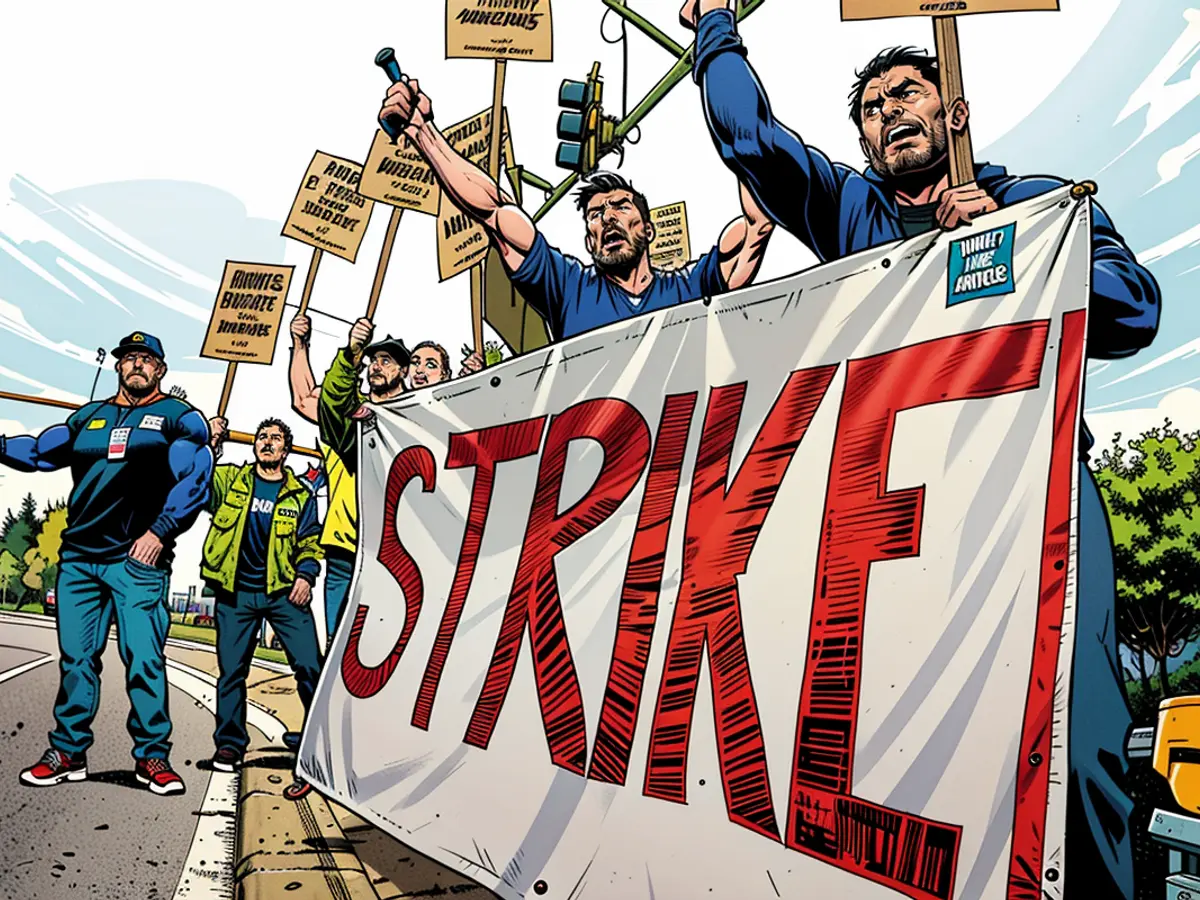The potential strike may exceed Boeing's $1 billion in losses. However, that might only scratch the surface of its challenges.
The length of the strike by Boeing's workers will significantly impact the company's standings. If the strike lasts only a week or so, it might just be a minor setback for a company that's already struggled with escalating debt and a plummeting credit score over the past five years. The last strike, which occurred in 2008, resulted in a $1.2 billion reduction in Boeing's net income. If the current strike continues for several months, as has happened during previous labor disputes at Boeing, the consequences could be equally devastating.
CEO Brian West warned investors about the potential impact of the strike, stating that it would hamper production, deliveries, and operations, potentially jeopardizing the company's recovery.
Boeing is still working towards financial stability, despite the strike. Its ability to manufacture 737 Max jets is limited due to the Federal Aviation Administration's monitoring of the company's assembly line quality. The forthcoming 777X jet, crucial for Boeing's return to profitability, encountered issues during its test flights and is significantly delayed in obtaining passenger certification. Boeing lacks the necessary funds to develop a new aircraft model to cater to market demands, and its sales lag behind those of rival Airbus.
Regardless of the strike's length, Boeing is fortunate to be part of a global duopoly with Airbus. The two companies are the sole manufacturers of large commercial jets, and the demand for aircraft orders is robust, with a years-long backlog. Canceling an order with Boeing to place one with Airbus would result in a lengthy wait due to Airbus's order backlog. Once an airline purchases a jet model, it is usually locked into using that model due to the increased operating costs associated with owning a competing model from the rival manufacturer. As a result, despite its financial challenges, Boeing is not in imminent danger of extinction.
The strike may persist for an extended period
Negotiations between Boeing, the union, and federal mediators are anticipated to resume early this week. Although both parties claim they want to reach a settlement to terminate the work stoppage, the history of labor relations at Boeing and the overwhelming rejection of the tentative agreement hint at a prolonged strike.
Boeing proposed a four-year contract with raises of at least 25% throughout the term, a 11% immediate wage increase, cost-of-living adjustments that could increase pay further, higher contributions to 401(k) accounts, and reduced employee health insurance premium contributions. Boeing regarded it as their best-ever offer to the union, while the union leadership considered it their best-ever negotiation with the company. However, 96% of the union members who voted on the proposal rejected it, eventually leading to the strike.
The 2008 strike lasted for more than eight weeks. Boeing may not suffer significant sales losses from this strike, but the delay in deliveries could exacerbate its existing financial difficulties, as most revenue from aircraft sales is realized at delivery.
Credit rating agencies Fitch and Moody's forecast a possible downgrade of Boeing's credit rating to junk bond status due to the strike, with Fitch and Standard & Poor's already anticipating such a move before the strike commenced.
Covering increased expenses
Boeing has pledged to find a new agreement acceptable to the union members, despite its ongoing financial losses. Despite the increased costs, the company should be able to afford them, largely because the actual cost of assembling an aircraft is only around 15%. Most of the expenses relate to paying suppliers for aircraft components, such as avionics, seats, and the fuselage itself.
The 15% Boeing pays for assembly includes all expenses, from raw materials to factory operation costs to labor. Therefore, paying the 33,000 production workers amounts to only a minor fraction of an aircraft's overall cost.
This is one of the reasons why workers on strike were quick to reject Boeing's offer, which appeared generous at first sight. Union members have gone without significant wage increases for 16 years and have been forced to give up perks such as a traditional pension plan or face the loss of unionized jobs to non-union factories that Boeing considered establishing. They were compelled to make such concessions during the company's prosperous years, not during its current period of financial distress.
"If Boeing considers us the best in the industry, they need to treat us like the best in the industry," Jim Bloomer, a 28-year-old Boeing employee in Renton, Washington, told CNN affiliate KING-TV from the picket line outside the plant that manufactures the 737 Max on Friday. "If you're dealing with a $180 million airplane, the percentage of labor cost is minuscule."
The prolonged strike could significantly impact Boeing's business operations and financial stability, potentially adding to its existing challenges. Despite the additional expenses, Boeing should be able to cover them due to the relatively low cost of aircraft assembly compared to other expenses.








